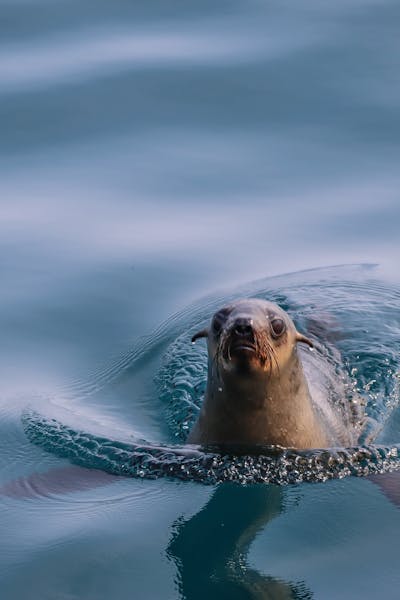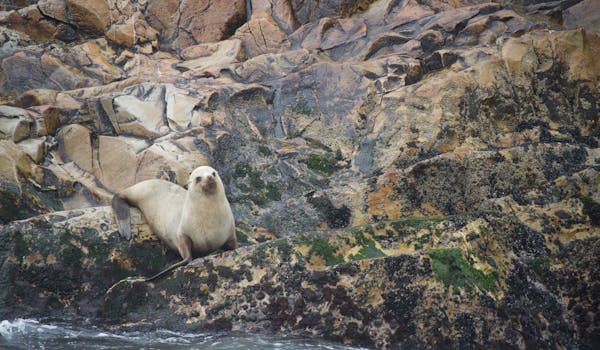Make it yours
Every experience is customised to be just right for you.
WILDLIFE VOLUNTEERING: THE RED FLAGS MOST PEOPLE MISS
Learn more
Dive into action. Protect Africa’s diverse ocean life.
Watching a humpback whale breach metres from your research boat is unforgettable... but you won’t just be watching. Marine conservation volunteering in Africa with African Conservation Experience means actively taking part in marine and coastal conservation work that studies ocean wildlife, protects fragile habitats, and contributes to scientific research.
From identifying whale and dolphin behaviour to studying shark egg cases, you're helping to protect one of the most biodiverse marine ecosystems on the planet. This is a rare opportunity to experience marine biology in action and help support the species that depend on the ocean for survival.


Explore marine conservation volunteering in Africa.

Join one of Africa’s most inspirational and effective marine and coastal conservation projects
View details for Coastal Conservation ProjectClick the button to access your free guide. We've also sent it to your email.
Inside: the 8 red flags that reveal exploitation, the 10 green flags that prove genuine conservation, and the questions to ask before you book.
Download now
Photo captured by a volunteer at our Coastal Conservation Project
South Africa's coastline is 1,740 miles long and includes coral reefs, sandy shores where turtles lay eggs, kelp forests, and areas where whales can safely give birth. This is where the warm tropical waters from the Indian Ocean meet the icy currents flowing up from the South Atlantic Ocean. This aquatic crossroad brings together a wonderfully diverse range of marine life, and, as a coastal and marine conservation volunteer, you’ll find yourself right in the centre of this incredible seascape and coastal environment.
Bryde’s whales are found here year-round, while southern right whales can be spotted between June and November as they migrate to Africa’s coastal waters to breed and give birth. Throughout the year, you’ll also find bottlenose dolphins playing in the warm waters around our marine conservation projects, sometimes accompanied by pods of common dolphins and humpback dolphins. Orca sightings are rarer than those of other dolphins (despite being called killer whales, orcas are actually dolphins), but they too can be spotted in the waters along the Garden Route.
Aside from marine mammals, the ocean and shoreline here are also home to vast colonies of seabirds, cape fur seals, tropical and coldwater fish, a large variety of shark species, and even the world’s first protected great white shark population.
Marine biologists in South Africa’s Western Cape coast have been at the forefront of ocean and coastal conservation for many decades. Over the years, generations of researchers and marine conservation volunteers in Africa have contributed to comprehensive coastal research projects.
Today, marine conservation volunteers and researchers are building on this legacy and extending their impact through continued research and education. A growing area of research for South Africa’s marine conservation programs is the increasing numbers of southern right whales and humpback whales that migrate to breeding grounds around coastal South Africa. As some of the world’s largest sea creatures, ocean conservation organisations must gain a clear insight into their migratory routes, behaviour patterns, and their role within the marine ecosystem.
We’ve all seen news reports of major polluting events such as oil tank spills. Shocking as these incidents are, most pollution happens little by little - a slow increase in water toxicity levels, people habitually leaving food wrappers on the beach, discarded materials from the fishing industry, a new sewage outlet near a vital wildlife breeding ground, and so on. Individually, none of these events would make the evening news, but when they happen a thousand times every day, it’s not long before they add up to a major environmental problem.
There are many threats to wildlife in South Africa’s coastal and oceanic regions, but few cause as much destruction as pollution from human towns and cities. As cities continue to grow in size, their inhabitants consume more resources and produce more waste year on year. Marine biologists adopt many strategies to tackle pollution, from arranging beach cleans to advising town planners and leading community outreach programs.
Marine conservation volunteering is a varied role that combines both land and sea-based activities. As a marine conservation volunteer, you'll have the chance to explore nature reserves up and down the coast, work with local communities, research wildlife populations and help manage and maintain their natural habitats.
Marine conservation is vital in South Africa due to its rich and diverse coastline, which supports a wide range of marine life found nowhere else in the world. The country’s oceans are home to Critically Endangered species like the African penguin and important ecosystems such as kelp forests and coral reefs. These marine environments not only support biodiversity but also sustain local economies through fishing and tourism. Protecting them ensures food security, preserves cultural heritage, and helps combat climate change by maintaining ocean health and resilience.
As a marine conservation volunteer in Africa, you'll have opportunities to monitor whales, dolphins, penguins, and even orcas, using professional equipment like Baited Remote Underwater Video (BRUV) systems and marine species ID kits. This type of volunteer work in marine conservation not only supports urgent recovery efforts but also provides you with specialist knowledge in marine biology and ecology, all while helping to protect one of the planet’s most extraordinary marine environments.
Our Coastal Conservation Project has had significant success in addressing damage to the coastal and marine environment and is increasing awareness of the fragility and uniqueness of the oceanic region.
Take the first step on your adventure by simply submitting an enquiry form. We offer marine conservation volunteer opportunities based on your interests, experiences, and goals. Whether you’re passionate about ocean wildlife, habitat restoration, or scientific research, we’ll help you find the perfect fit. Our projects offer meaningful volunteer work in marine conservation that makes a real impact, and you can even combine multiple volunteering projects to create an exciting Combined experience. You can find out more about how we take time to create a customised African Conservation Experience that’s just right for you here.
We can't wait to speak with you about the opportunities to become a marine conservation volunteer in Africa!


